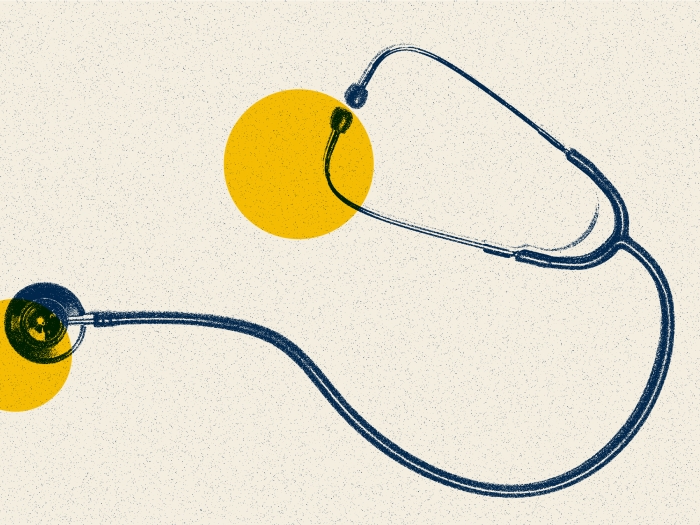Michigan Medicine and College of Engineering teams studying depression, pancreatic cancer and cancer diagnostics compete in just-for-fun STAT Madness tournament
Authors |
College basketball fans have March Madness. But for fans of medical research, there’s nothing like STAT Madness, an online tournament of science run by the STAT health news organization.
This year, the tournament bracket includes three teams of University of Michigan scientists, physicians and engineers. Can one of them make it all the way, and defend the tournament title that Michigan scientists won last year?
It all depends on how many members of the public vote for these true-blue entries:
- Pancreatic cancer treatment resistance: A team led by Costas Lyssiotis, Ph.D. in the Rogel Cancer Center and Department of Molecular & Integrative Physiology, made the bracket for a study that shows why pancreatic cancer cells stubbornly resist treatment with a common chemotherapy drug. It could pave the way to better treatment options. Vote for this entry here. Learn more about the work, which was published in Cell Metabolism.
- Liquid biopsy technology: A joint Engineering/Rogel Cancer Center team led by Eusik Yoon, Ph.D. with former Rogel director Max Wicha, M.D., is in the competition for their work to develop a way to separate cancer cells out of blood samples taken from patients, so they can be tested for genetic signatures that could guide treatment. Vote for this entry here. Read more about the work, published in Nature Communications, here.
- Effects of intense stress on DNA: A team led by Srijan Sen, M.D., Ph.D., of the Depression Center, Department of Psychiatry and Michigan Neuroscience Institute, showed that new doctors’ DNA ages six times faster than normal during their first year of residency, thanks to the intense stress of their training. The research, published in Biological Psychiatry, has implications for understanding vulnerability to depression; vote for this entry here and read more about it here.
Voting is now under way in the bracket of 64 teams from across the country, each selected for a piece of important research they published in 2019. Anyone can vote for a winner in each matchup in the bracket, multiple times a day. The first round of voting ends Saturday at 11:59 p.m.
The tournament will continue through March, and anyone can sign up to receive updates when each new round of voting begins. On social media, the #STATMadness hashtag will give quick access to the latest updates from STAT and from the U-M social accounts that will share updated and encourage voting in each round.
The field of competitors will narrow week by week until the final two teams are standing — right at the end of basketball’s March Madness in early April.
In addition to last year’s title, claimed by a team led by Susan Shore, Ph.D., of Otolaryngology, Michigan Medicine made it to the Round of 8 in STAT Madness 2018 with an entry focused on antibiotic-resistant microbes in nursing homes. In the first year of the tournament, U-M researchers who study the microbes that inhabit human lungs made it to the final round.

Department of Communication at Michigan Medicine





